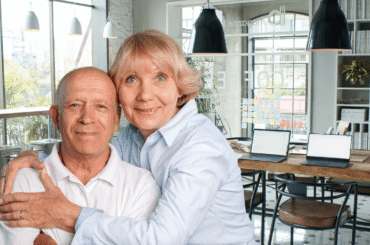Mental Health Awareness
Every year in the middle of May, celebrate the week of Mental Health Awareness. It is pronation by the British organization Mental Health Foundation. You can better relate to what we mean by Mental Health Awareness by using words like depression, anxiety, and panic attacks.
This year the theme for the week was Mindfulness, which is a very simple way that you can describe as concentrating on the present without getting stuck in the past or worrying about the future. How often does it not happen to us all that our worries about the future or remembering things that did not turn out well in the past are so strong that we get paralyzed in acting properly in the present? We run into Frustration mode.
We have all been experiencing this situation, some people more and others less. Some people are constantly in frustration mode or close to them. Depression, anxiety, and backcoming frustrations are not signs of weakness, as we normally view these mental modes. As the Mental Health Foundation so wisely says;
“It is a sign of having tried to remain strong for too long time.”
Normally we describe it as stress when the first symptoms of something that can become severe start to appear in daily activities. Stress affects physical and mental well-being. Stress is a sign that you have gone off track in your life in one way or another, and you need to adjust your behavior and your actions to equalize your feelings. If your mind cannot decide what it should be working towards, it causes you to feel stressed out.
From Stress to Depression
Most of us in life will be stressed out from time to time. That is normal. However, if the stress becomes a fixed part of your mental set-up, it can easily turn into a mode of anxiety. When anxiety hits you, you need to deal with it seriously, as consequences to follow could be panic attacks and then you run into a mode of depression.
One thing that may help you feel a little better about anxiety and panic attacks is understanding that everyone at one point in life will experience some sort of panic attack. Whether it is a mild or chronic attack, everyone will experience the fear and panic that is anxiety.
The Mental Status as a Balance Sheet Study
The most popular courses at the University of Harvard are not the ones you might think about. The most popular one is given by Tal Ben Shahar and attracts more than 1,400 students each semester. More than 20% of all students who graduate from Harvard take this course. Why? This course follows the most recent investigations about,
Positive Psychology.
In the course, they compare life to a company with revenues, profit, and costs. Profit is always a mathematical consequence of the balance between revenues and costs. Life functions the same way. Our costs could be our negative emotions and thoughts, while revenues come from our positive emotions and thoughts. A company with a higher cost than revenues will sooner or later go bankrupt, and the same applies to our lives.
In the Harvard course, the following 13 pieces of advice appear as key elements to look after that our “company” called Life Not will run with red figures:
13 pieces of advice to check
-
Exercise
Practice some kind of physical activity (running, walking, going to the gym, doing yoga, etc.). Experts state that practicing workouts on a regular basis is better than any kind of anti-depressive medicine.
-
Breakfast
Do not ignore the breakfast. Studies show that breakfast will help you to get the necessary energy to optimize the thinking and execution of all your activities.
-
Gratitude
Be grateful for what you have in life. Write down on a piece of paper 10 things in life that you have and that make you happy. This exercise will force you to think in a positive way.
- Be Assertive. Ask for what you want and say what you want. Being assertive will help improve your self-esteem. Being silent and just listening to what other people want and say will only generate sadness and demotivation.
-
Spend your money on EXPERIENCES and not on things
A study shows that 75% of the society feels happier when investing their money in travel, courses, etc., while 34% feel happy with purchased stuff.
-
Deal with your Challenges
Do not leave what you can do today until tomorrow. Studies show that the more you postpone tasks you know have to be done, the more anxiety and tension you will create. Work with a to-do list daily, weekly, and monthly.
-
Nice reminders
Hang up photos and text phrases around you from your loved ones. This will give you happy moments all the time.
-
Be kind and friendly
Always be kind and friendly with everyone around you. Studies show that only being friendly with a smile on your lips will change your animation mode positively.
-
Use comfortable shoes
Studies show that when there is pain in your feet, your animation mode decreases.
- Watch your stance Walking and moving your body correctly with a correct shoulder position and with your face and eyes ahead will help to improve your animation mode.
-
Listen to music
It is proven that music will wake you up and produce happiness in life.
-
Eat right
It is very important to know what and when we eat to keep our animation on an optimized level. Eating something light every 3-4 hours will help keep the glucose level up correctly. Do not escape from any meal! Avoid wheat flour and sugar. Eat everything and try to vary as much as possible.
-
Fix yourself and be Attractive
Studies show that 41% of people are happier when they think that they look good. Be handsome!
How to be happier
At the University of Harvard, they do not teach to be happy. The course given by Tal Ben Shahar only pretends to give knowledge about how we would be able to obtain more happiness in life.
As business entrepreneurs, we are taught how to run a company successfully, and we know quite well how to use the different variables at our disposal to achieve a profitable company with a prosperous future. Now, it is time to take care of the most important “business” we all have—our own “company” represented by our lives. Start with the initial balance sheet; from there, let´s go for a five-year business plan.

——
Want to stay updated on new posts just like this one?
![]() and get the latest posts automatically via email
and get the latest posts automatically via email
Jan O. Nilsson – Mental Health Awareness. <==Go to the top of the page
Follow me:





